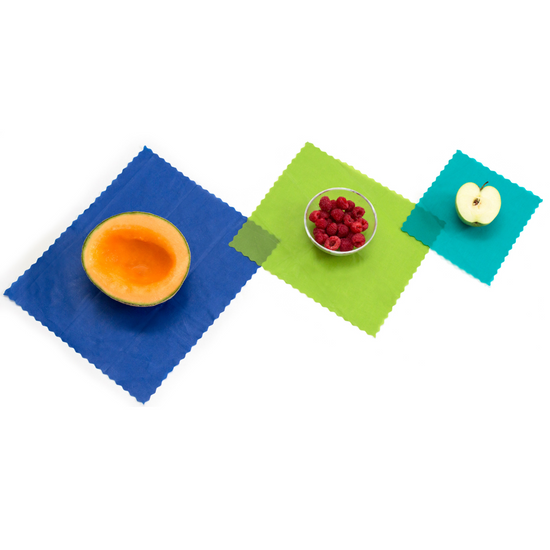This is something I need to get better at, and until now, I just haven’t had enough information. Rumor has it that recycling will be sent to the landfill if it’s not clean enough -- but is that true? And how clean does it need to be? Do I really need to scrub all of the residue out of my nut butter jars?
I guessed you might have the same question. So, for both our sakes, I did a little research. Here’s what I found.

The information on this varies depending on who you ask.
According to Chris Goodwin, Communications Manager for a local recycling center in Minneapolis, recyclables will not be rejected if they’re dirty -- meaning, food residue left on recyclables does not affect whether the item can be recycled.
There’s also a chance that, though dirty recyclables can be cleaned, if it’s too dirty, the recycling center might just throw it out anyways because it’s more economical to do so. Hard-to-clean containers means a more expensive recycling process and more expensive end product. If it’s more expensive for the companies making products out of these recycled materials, they’ll just opt for the cheaper new materials instead.
Plastic, Metal, and Glass Containers

From all the varied information, it is consistent that a little organic matter is okay, but don’t leave large chunks of food in your containers, particularly if they’ll get dried up and hard, making the container difficult to clean. Fill your container with warm soapy water and give it a shake -- this will be enough for most recyclables -- but wipe out the majority of sticky things like nut butter beforehand.
Plastic Bags and Film
Plastic bags do need to be clean and dry in order to be recycled. Wet or dirty plastic bags can make a whole bale of plastic musty and non-recyclable.

Most cities don’t accept these at the curb so you need to take them to a grocery store that offers plastic bag recycling or get a membership to a local curbside service like Ridwell (for the greater Seattle area, but you might be able to find a local recycling start up for your city) or a shipping service like Terracycle which is available nationwide in both the US and Canada. Services like these not only take plastic bags, but also other hard-to-recycle items like batteries and textiles.
Paper and Cardboard
Paper products must be mostly clean in order to be recycled -- no cheese-covered pizza boxes, but a little oil stain is fine. The good news is you can still put soiled paper in the compost.
Reduce, Refuse, and REUSE!
We absolutely should recycle as much material as we can, but as we’ve discussed before, recycling is fraught with issues and we should rely on recycling as the last step in our sustainability practices -- starting with Reduce, Refuse, and Reuse.

Glass jars are super useful and can be reused for a variety of purposes before recycling like food storage, jam making, chia seed pudding, glasses for your morning orange juice, a pen holder for your desk, potting plants, storing your homemade flaxseed hair gel (mentioned in our recent sustainable hair care post), and DIY candles -- these make great gifts! If you have enough glass jars already, give them away on your local Buy Nothing Facebook group.
What creative ways are you finding to reuse items before you recycle?





In British Columbia, we have city recycling yards which take almost every item except rubbers (which nobody seems to know how to recycle). In our Richmond city yard, there are bins for metals, hard plastics, soft and crinkly plastics, styrofoam (all of which if free of all contents and clean)books, any kind of electronics and appliances, furniture, large quantities of tree clippings, etc. I am appalled that as conscious as I am of so many areas of recycling, I can still accumulate a large bag of soft & crinkly plastics for recycling within a couple of weeks. On the other hand, in my city collections (weekly for compost and recyclables and bi weekly for Land Fill items), I have the smallest bin available from the city and it is almost never more than 1/4 full from a household of 2-3 people. I try hard, but I wish more items were sold in bamboo containers than styrofoam and plastic. I recently bought toilet paper that was wrapped in paper and the company really made a deal of it, which made realize that though I’m buying recycled toilet paper, I’m still “sinning” with the plastic wrap. I started buying bamboo toilet paper but it is at least double the cost, so I can’t afford it very often.
So if your city/town doesn’t have a good recycling programme, or doesn’t have a collection yard for recycling, start a petition to get one! Cheers
PS If you resist the idea of washing your items before recycling, please just think about the poor people who pick it up or deal with it in the recycling centres and the stench they have to deal with!